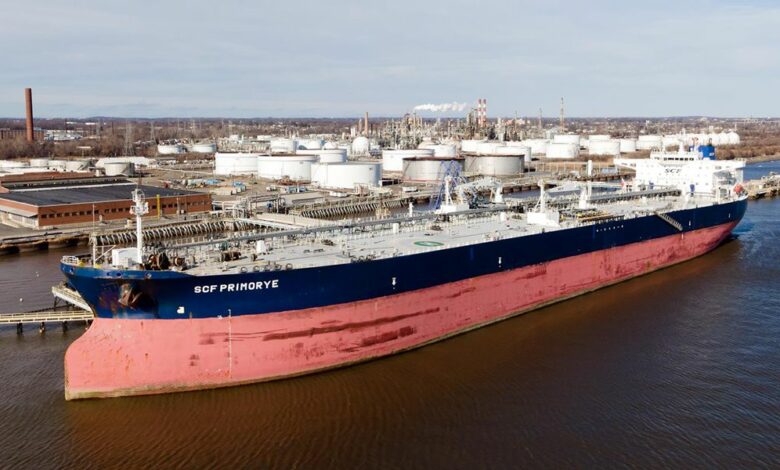
Efforts by regulators in the US, Britain and the European Union to engage more directly with shipowners and service providers linked to Russian oil exports are paying off with clear signs demand for Russian crude is cooling as sanctions tighten.
Over the past six months, authorities in the West have started to clamp down on shipowners and service providers which were suspected of not complying with the December 2022 enforced Russian oil price cap. This led to what American tanker broker Poten & Partners described as an “exodus” of Western owners from the trade, making Russia more reliant on the dark fleet. However, around the same time, G7 countries started scrutinising – and sanctioning – an increasing number of vessels involved in the transportation of Russian crude oil.
“This enforcement clampdown has created increasing problems for both Russia and its key customers,” analysts at Poten noted in their most recent weekly report.
India in particular seems to be keen to reduce its reliance on Russian oil with Splash reporting earlier this year on how India has pivoted back to Iraq for its crude oil supplies.
Russia had become India’s top supplier of crude oil after the country started offering heavy discounts on its crude post the outbreak of the Russia-Ukraine war, something that transformed the global tanker trades over the past two years. This Russian dominance is now fading, however.
The Indian minister of petroleum and natural gas, Hardeep Singh, indicated earlier in January that Russian oil had lost its price advantage compared to Iraq’s crude oil.
It is not just India pulling back from taking Russian oil with Poten noting Turkish and Chinese players have both reined in their imports in recent months.
“The Russians are trying to counter these developments by looking for alternative buyers,” Poten noted, listing small recent shipments to the likes of Venezuela, Pakistan, Ghana and Brunei.
“Much higher discounts may be needed or more Russian crude risks being stranded,” Poten suggested.
Tanker experts at rival broker Gibson have also discussed how the Russian market is becoming increasingly more difficult for many players to get involved with.
“As sanctions enforcement increases, things could become even trickier going forward,” Gibson suggested in its own most recent weekly report.
As well as the sanctions there has been the problems the Russian export machine has encountered from repeated recent Ukrainian drone strikes on a great deal of Russian oil infrastructure in the Black and Baltic seas.
“[E]xporting Russian crude has become more challenging as more tankers and operators face sanctions and western owners increasingly pull back from engaging in this trade,” Gibson reported.
Although overall crude export levels have remained steady since the start of the year, averaging 3.48m barrels per day, Gibson has now called the peak of these flows.
“The recent case of undelivered Sokol grade crude due to sanctions and payment issues has likely also made some buyers hesitant to increase their intake of Russian grades. The expectations of even further sanctions and compliance requirements going forward will add only further incentive to pull back from Russian linked oil trades,” Gibson suggested.
